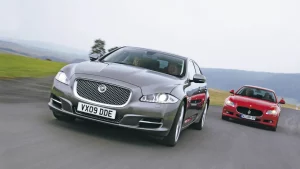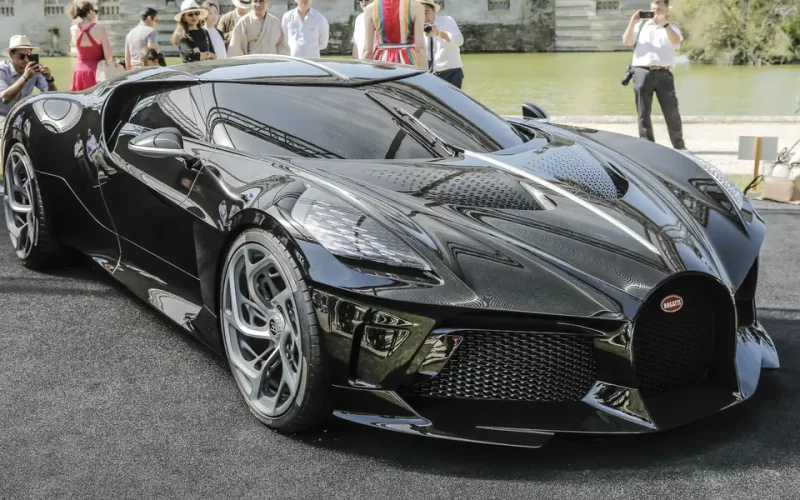The European Union (EU) has recently announced plans to impose tariffs of up to 48% on electric vehicles (EVs) imported from Chinese. This decision has sparked widespread debate, as it comes at a time when the global automotive industry is undergoing significant transformation towards sustainable energy solutions. The move is aimed at protecting the EU’s domestic automotive industry from what it perceives as unfair competition due to China’s heavy subsidies to its EV manufacturers. This article delves into the reasons behind the tariffs, the potential impacts on various stakeholders, and a comparative analysis of the situation.
Background of EU-China Automotive Trade

China has rapidly become a global leader in electric vehicle production, thanks to substantial government subsidies and incentives aimed at promoting clean energy. The country’s EV manufacturers, including giants like BYD and NIO, have aggressively expanded their market share globally. In contrast, the EU, while also fostering the development of EVs, faces competition from these heavily subsidized Chinese imports, which are often cheaper and thus more attractive to consumers.
Reasons for Imposing Tariffs
The primary reason for the EU’s decision to impose tariffs is to level the playing field for its domestic car manufacturers. European automakers argue that Chinese EVs benefit from unfair advantages due to the subsidies provided by the Chinese government. These subsidies allow Chinese manufacturers to sell their vehicles at lower prices, undercutting European companies and potentially leading to job losses and factory closures within the EU.
Potential Impacts on Stakeholders
Impact on Chinese Manufacturers
The tariffs could significantly affect Chinese EV manufacturers by reducing their competitiveness in the European market. With tariffs as high as 48%, the cost of Chinese EVs will rise, potentially leading to decreased sales. Chinese companies may need to rethink their pricing strategies and could face reduced market penetration in Europe.
Impact on European Automakers
For European automakers, the tariffs provide a protective buffer, allowing them to compete more effectively against lower-priced Chinese imports. This could lead to increased market share for European manufacturers and potentially more investment in local production and innovation. However, it also places pressure on them to continue improving their products and maintain competitiveness on a global scale.
Impact on Consumers
European consumers might face higher prices for electric vehicles as a result of the tariffs. While the measure protects domestic industry, it could limit the options available to consumers, potentially slowing down the adoption of EVs due to higher costs. This might contradict the EU’s broader goals of promoting sustainable energy and reducing carbon emissions.
Analysis Table: Pros and Cons of the Tariffs
| Aspect | Pros | Cons |
|---|---|---|
| Economic Impact | Protects EU jobs and industry | Potentially higher prices for consumers |
| Competitive Balance | Levels the playing field for EU manufacturers | Risk of trade tensions with China |
| Consumer Choice | Encourages consumers to buy EU-made EVs | Reduces variety and potentially delays EV adoption |
| Environmental Goals | Promotes local, potentially greener production practices | Higher prices might slow down the shift to electric vehicles |
Comparative Analysis: EU vs. China in the EV Market
| Aspect | European Union | China |
|---|---|---|
| Market Share | Smaller but growing rapidly | Largest producer and consumer of EVs |
| Government Support | Subsidies, incentives, and stringent environmental policies | Heavy subsidies and strategic government support |
| Production Costs | Higher due to labor and environmental standards | Lower due to subsidies and economies of scale |
| Innovation and R&D | Strong focus on innovation and sustainability | Leading in battery technology and cost-effective production |
| Trade Policies | Protective tariffs to safeguard domestic industry | Aggressive export strategies |
Broader Implications for Global Trade
The EU’s decision to impose tariffs on Chinese EVs could have broader implications for global trade. This move might trigger retaliatory actions from China, potentially leading to a trade war that could impact other sectors beyond the automotive industry. Furthermore, it might influence other regions, such as the United States, to consider similar protective measures.
Strategic Responses from China
In response to the tariffs, Chinese manufacturers might consider establishing production facilities within the EU to circumvent the tariffs. This strategy could not only help maintain their market presence but also create local jobs and contribute to the EU economy. Additionally, China may seek to strengthen its presence in other emerging markets where EU influence is less pronounced.
Long-term Effects on the EV Market
In the long term, the tariffs could lead to a more balanced and competitive EV market in Europe. European manufacturers might invest more in innovation and efficiency to maintain their edge, while Chinese companies could be driven to improve quality and cost-effectiveness without relying heavily on subsidies. This competition could ultimately benefit consumers through better products and technologies.
Conclusion
The EU’s decision to impose tariffs of up to 48% on Chinese electric cars is a significant step aimed at protecting its domestic automotive industry from subsidized competition. While the move has potential benefits, such as safeguarding jobs and fostering local innovation, it also poses challenges, including higher consumer prices and possible trade tensions with China. The broader implications for global trade and the long-term evolution of the EV market will be crucial to watch as this situation unfolds. Ultimately, the goal should be to achieve a fair and competitive market that promotes sustainable energy solutions globally.











